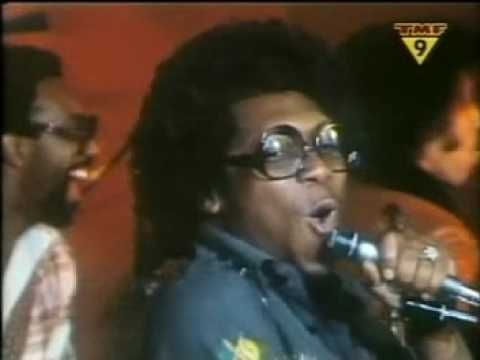Episode 47: Save a Prayer
There was another mass shooting this week. Last night a gunman killed eight people at a FedEx facility near Indianapolis’s main airport before committing suicide. Police revealed the shooter as 19-year-old Brandon Hole, who previously worked at the facility and was known to federal and local authorities before the attack. According to three law enforcement sources, a family member of the suspected shooter reached out to police, warning about the suspect’s potential for violence. The gunman arrived at the site around 11 pm, exited his car, and opened fire at the parking lot before entering the building. Hours after the killing spree, family members of employees at the facility were still corralled at a nearby Holiday Inn, waiting to hear from their loved ones. Save a prayer for the families who learned today they lost a loved one to senseless violence.
DEREK CHAUVIN TRIAL
Former Police Officer Derek Chauvin, 45, is charged with murder and manslaughter in George Floyd’s death after the 46-year-old was arrested on suspicion of passing a counterfeit $20 at a neighborhood market last May.
The prosecutors say Floyd died because Chauvin’s knee was pressed against Floyd’s neck for 9.5 minutes as he lay on the pavement, his hands cuffed behind him and his face jammed against the ground. Law enforcement veterans inside and outside the Minneapolis department testified for the prosecution that Chauvin used excessive force and went against his training. At the same time, medical experts said Floyd died of asphyxia, or lack of oxygen, due to Chauvin’s hold and duration.
The defense team for Derek Chauvin rested its case yesterday. Over two days, the defense team called several witnesses who testified that Floyd’s death was caused by drug use, heart disease, or carbon monoxide poisoning. Floyd had high blood pressure and narrowed arteries, and fentanyl and methamphetamine were found in his system. Former Maryland chief medical examiner David Fowler testified that it was his medical opinion that Mr. Floyd suffered cardiac arrhythmia, which was contributed to by his underlying health conditions. He said he would have listed the cause of Floyd’s death as “undetermined.”
Before the jury was brought in yesterday, Chauvin informed the judge he would invoke his Fifth Amendment right not to testify. The trial is in recess until Monday morning, at which point closing arguments will commence. Judge Peter Cahill reminded the 14 jurors they will be sequestered starting Monday and said: “If I were you, I would plan for long and hope for short.”
Chauvin faces three charges, those being second-degree murder, third-degree murder, and second-degree manslaughter. The terms homicide, murder, and manslaughter get used interchangeably, but it’s essential to understand the distinction of each term.
All killings of human beings are homicides. Many homicides, such as murder and manslaughter, violate criminal laws. Others, such as killing in self-defense, or killing during war-time battle, are not criminal and considered “justified killings.” All murders are criminal homicides, and there are three degrees:
-
First Degree : Killing that is intentional and premeditated. The intent does not need to be focused on the actual victim. If someone planned on killing one victim but accidentally kills someone else, the murder is still intentional and premeditated, meaning a first-degree murder charge. Chauvin is not charged with this crime.
-
Second Degree : There is a lack of premeditation, but there was an intention to kill. Some states consider it to be second-degree murder if the defendant intended only to cause bodily harm but knew or should have known that death could result from the act. This charge is Chauvin’s most severe and carries a prison sentence of up to 40 years in prison, though Minnesota sentencing guidelines call for ten to fifteen years.
-
Third Degree : Someone unintentionally kills someone while committing a dangerous act. This charge is different from first-degree and second-degree murder, where the intent is generally required. Only three states have third-degree murder laws: Minnesota, Florida, and Pennsylvania. Each of these states defines third-degree murder differently. In Minnesota, this category includes the unintentional killing of a human through an eminently dangerous act committed with a depraved mind and without regard for human life. It also includes causing another’s drug-related death by selling, delivering, or administering a Schedule I or II controlled substance. The penalty is up to 25 years in prison and a fine of up to $40,000, though sentencing guidelines call for 10 to 15 years.
Manslaughter generally means an illegal killing that falls short of murder, and there was no intent to kill. Some states break manslaughter charges into voluntary and involuntary. Others break them down into different degrees, just like murder. The difference between third-degree murder and manslaughter often depends on the defendant’s state of mind at the killing time. In Minnesota, for example, someone can be convicted of manslaughter in the second degree if they knew they were unreasonably risking someone else’s life and took that chance. This charge is different from third-degree murder, where the person must act with a depraved mind and malice (wanton disregard for human life).
-
First Degree : Voluntary manslaughter, also called “heat of the passion” manslaughter, occurs when someone intentionally kills another person in the heat of the moment. Unlike third-degree murder, there is intent to kill, but it is assumed a reasonable person may have lost control of their emotions when similarly provoked.
-
Second Degree: Involuntary manslaughter means the perpetrator didn’t intend to kill anyone but still killed the victim through behavior that was either criminally negligent or reckless. One typical example is a DUI accident that kills someone. This charge is Chauvin’s least serious and carries up to ten years in prison, though sentencing guidelines are generally less than five years.
The bar for a murder charge is high in these matters. There has been only one Minnesota officer to be convicted of murder on duty. In 2019, ex-Minnesota police officer Mohamed Noor was convicted of third-degree murder over the death of Justine Damond. Damond had called 911 to report a possible sexual assault in progress in the alley near her home but was shot by Noon, who fired through the open window of the police car. Noor was sentenced to 12 years in prison.
POLITICS
The Biden administration announced sanctions against Russia for interfering in US elections, transnational corruption, targeting dissidents abroad, violation of other countries’ sovereignty, and the SolarWinds cyber attack. The US government will ban American financial institutions from purchasing new bonds from the Russian finance ministry, central bank, or sovereign-wealth fund after June 14. The executive order also allows the US government to sanction any part of the Russian economy, which will make US firms think twice about doing business in Russia. The plan’s weakness is that US traders will still be able to access Russian debt in secondary bond markets.
On a Tuesday call with Mr. Putin, the President suggested a summit meeting in a third country in the coming months. The Kremlin said the sanctions could blow up Mr. Biden’s offer, but don’t count on it. The Russian economy is struggling and economic sanctions will hamper recovery. Meanwhile, Russia has deployed tens of thousands of troops and heavy weapons near Ukraine, and its intentions remain unclear. Russia summoned the US Ambassador to Moscow, and a foreign ministry spokeswoman warned, “Washington must realize that the degradation of bilateral relations will have to be paid for. The responsibility for what is happening lies entirely with the United States.”
COVID
The FDA temporarily paused the J&J vaccine in the US over blood-clotting concerns. Six women developed blood clots after receiving the J&J vaccine, and one died. Pfizer and Moderna declined requests from J&J to join them in investigating the incidence and risks of blood clots in COVID vaccines. AstraZeneca, whose vaccine has been dispersed in fits and starts in the EU, following similar blood clot concerns , agreed to join forces to investigate the issue. Blood clots are considered a very rare side effect of all vaccines (1 in 1 million), with your chance of being hit by lighting twice as likely. Still, the vaccine is on hold, and a CDC advisory panel meets next week to discuss potentially resuming the shot’s use.
Pfizer CEO Albert Bourla said that people who receive the company’s vaccine might need a booster shot after 12 months or “an annual re-vaccination.” Experts say that additional shots may be required going forward due to the appearance of new coronavirus variants. Moderna is developing a booster for its vaccine, and J&J has previously stated that its vaccine may need to be administered annually. Of course, it’s still possible to get COVID after being vaccinated—there have been 5,800 confirmed coronavirus cases post-vaccination, including 396 who needed hospital treatment and 74 who died. That’s 0.0077% of the total vaccinations or one out of every 12,931 people.
ECONOMY & MARKETS
The U.S. economy and stock market are on fire. The S&P 500 notched a record close, its 22nd of the year. The Dow Jones Industrial Average closed above 34,000 for the first time after strong earnings and upbeat economic data sent stocks climbing. First-quarter earnings season kicked off in earnest this week, and on Thursday, several big banks reported profits that exceeded forecasts. The KBW Nasdaq Bank Index, which tracks shares of the largest lenders, is up 25% so far this year, compared to 11% gains for both major indexes. Many investors believe the rollout of Covid-19 vaccines and plentiful government spending mean stocks have room to keep rising.
Unemployment claims declined to the lowest level since the coronavirus pandemic struck last spring, adding to signs the U.S. economic revival is picking up speed. Jobless claims, a proxy for layoffs, fell to 576,000 last week from 769,000 a week earlier. That is the lowest weekly figure since March 2020. Claims remain higher than the pre-pandemic levels of around 220,000, but economists expect they will continue to drop as the recovery accelerates. U.S. Employers added 916,000 jobs in March, and the jobless rate edged down to 6%, from 6.2% in February. U.S. retail sales surged 9.8% in March from the month before, the most significant monthly gain since last May.
Coinbase ( COIN ) made history on Wednesday as the first significant crypto company to go public. The NYT called it “crypto’s coming-out party.” At the start of its first trading day, the cryptocurrency exchange platform’s valuation neared $100 billion midweek before pulling back to a more modest $67 billion. For Q1, the cryptocurrency exchange made a profit of $730–$800 million on ~$1.8 billion in revenue. However, competition is heating up. Many traditional brokerages are working to integrate bitcoin and ethereum trading on their platforms if they haven’t already. For this reason, expect to see more crypto companies going public and more merchants offering crypto payment options.
At the local level, Nashville continues to roar with investment. GM announced a $2.4 billion Spring Hill electric vehicle battery plant. This investment represents the largest one-time business investment in Tennessee history and will create 1,300 full-time jobs. GM has an aggressive goal of making only electric-powered vehicles by 2035. Oracle formalized plans to bring 8,500 jobs , with an average salary of $110,000, and a $1.2 billion investment to Music City. Of course, both announcements follow Amazon’s commitment to Nashville and plans for 5,000 jobs through a $230 million investment in a new operations hub.
OTHER NEWS
In the most significant update to Google Earth since 2017, Timelapse is a global, zoomable video that shows how our planet has changed since 1984. With Timelapse in Google Earth, 24 million satellite photos from the past 37 years have been compiled into an interactive 4D experience. Google partnered with organizations including NASA and the US Geological Survey’s Landsat program to collect images from 1984-2020 of every location on earth. Now anyone can watch time unfold and witness nearly four decades of planetary change. To explore Timelapse in Google Earth, go to g.co/Timelapse — you can use the handy search bar to choose any place on the planet where you want to see time in motion.
I. Below are the articles I found interesting the past week:
II. Stats that made me go WOW!
- Amazon hired 500,000 employees last year and now directly employs 1.3 million people around the world.
- According to the CDC, over 87,000 Americans died of drug overdoses in 12 months, a record since the 1990s. The number of opioid deaths surged 29% higher than in the previous 12-month period.
III. Name that Tune!
As I write this email, I am listening to “Save a Prayer” by Duran Duran.
Duran Duran is an English new wave band formed in Birmingham, England, in 1978. Keyboardist Nick Rhodes created the band, but the most well-known members are lead singer Simon Le Bon and bass guitarist John Taylor. The video age catapulted the group into the mainstream with the introduction of the 24-hour music channel MTV, helping Duran Duran sell over 100 million records worldwide and securing them as one of the most successful acts of all time. Many of their music videos were shot on 35mm film, which gave a much more polished look than other videos of the period. They also collaborated with professional film directors to take the quality a step further.
Duran Duran released the song “Save a Prayer” in 1982 with the debut of the album Rio. Russell Mulcahy directed the music video among the jungles, beaches, and temples of Sri Lanka. Scenes were filmed atop an ancient rock fortress, among the ruins of a Buddhist temple and the island’s southern coastline, with Simon Le Bon appearing in a Speedo. In other words, it had a little something for everyone.
If you enjoyed the newsletter, please add a friend and share it on social media!
Related articles.


